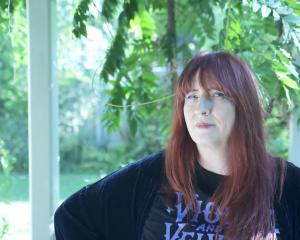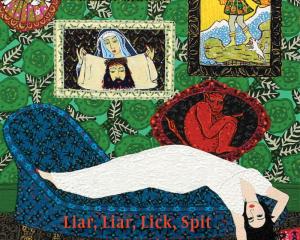Bryan James reviews The Appointment and In the Company of Angels.
The Appointment
Herta Muller
Granta, $26.99, pbk

In the Company of Angels
Thomas Kennedy
Bloomsbury, $38.99, pbk
Literary fiction of genuine quality is not easy to find these days and when you do come across it, very frequently you'll find your friends are keen to read it, too.
I've had to lend both of these books to others and the reports back are as mixed as the contents.
They have one thing in common: life under repression.
Herta Muller, the Nobel Literature prizewinner in 2009, writes in German, though she is Romanian-born and emigrated to West Germany in 1987.
I think only five of her books have been translated but her backlist is gradually being republished in English.
The Appointment was published in 1997, 10 years after she managed to escape from Ceausescu's Romania, and concerns one aspect of life under that hateful regime.
Her heroine, a young clothing factory worker, has been discovered inserting slips of paper into clothing exported to Italy, asking the finder to marry her and thereby enable her to leave the country.
She is interrogated regularly by the perverse Major Albu - hence the title - and while she awaits each appointment, reflects on her life as a prisoner in her own country; of the death of her girl friend who tried to escape; of her lover, Paul, an alcoholic, whom she believes is trustworthy, if damaged; and the lives of other members of her family.
This is a story of betrayal, told in spare, almost clinical prose, and how one woman tries to remain both human and a woman under a regime of repression, where everyone is a deal-maker, no-one can be fully trusted, and life is conducted in a kind of fog.
As I read it, my mind strayed to Christian Mungui's extraordinary 2007 film, 4 Months 3 Weeks & 2 Days, also set in Romania in 1987, and equally gripping in its account of the brutal choices people were forced to make under that totalitarian regime.

The Appointment has a similar magnetic quality.
I could say the same for Thomas Kennedy's In The Company Of Angels, originally published in Danish in 2004, in an altogether different writing style but still concerned with an authoritarian regime - in this case the Chile of the generals - and the consequences for those perceived as a threat.
Nardo, a teacher, is persecuted and tortured for teaching his pupils a poem that could be construed as "political".
His wife and son are murdered before his eyes.
On his release from prison, physically and mentally shattered, he travels to Copenhagen and its refuge for the victims of torture.
There he undergoes treatment to come to terms with his mental anguish, while his physical body repairs itself.
The process is aided when a Danish woman, also a victim, appears in his life.
She, however, is a recipient of physical abuse from the succession of men she loves.
Both chief characters must confront the question: did they in some way invite what happened to them? They fall in love and the relationship seems to promise a future.
Actually, I thought Kennedy's depiction of this sentiment less assured than the rest of the novel, whose most powerful characters are Nardo and his psychiatrist: their sessions are the core of the book, and its great redeeming quality.
The two are part of a community of characters, all suffering abuse of one kind or another, or are reflecting the consequences of abuse.
Kennedy, an American, has lived in Copenhagen for many years and seems, somehow, to be able to infuse his writing with a very stylish European flavour.
It is curious that he has been so neglected in the land of his birth.
If you like serious fiction, these two novels will make absorbing and thoughtful reading.
- Bryan James is the Books Editor












